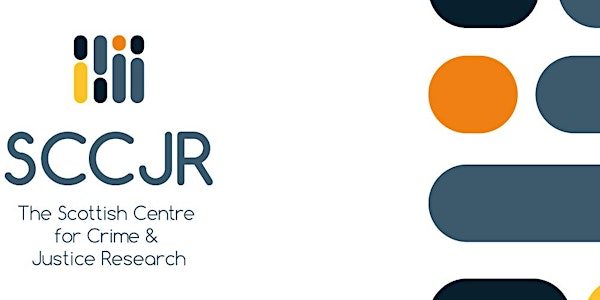
Lila Kazemian Seminar: Desisting in Prison
Date and time
Location
University of Glasgow
St Andrews Building, Room 224 11 Eldon St Glasgow G3 6NH United KingdomDescription
The Scottish Centre for Crime and Justice Research will welcome Lila Kazemian, Associate Professor at the John Jay College of Criminal Justice in New York for a special working lunch at the University of Glasgow on Friday 8th February.
Lila will give a presentation on her latest book, Desisting in Prison before opening up to the audience for discussion.
NB: Please bring your lunch with you!

Book Abstract: Although numerous studies have highlighted the negative consequences of rising incarceration rates, life-course and criminal career research has largely failed to document psychological, social, and behavioral changes that occur during periods of incarceration. This is particularly true for individuals serving long sentences, as they spend a significant portion of the life course behind bars. This oversight is a result of two factors. First, there is a lack of comprehensive data on long-term prisoners. While several studies have conducted retrospective surveys documenting various dimensions of prison life, prospective longitudinal follow-ups of prisoners are scarce (with the noteworthy exception of recent research conducted at the University of Cambridge Prisons Research Centre). Second, due to data limitations, past research has often assumed that criminal careers are halted during periods of incarceration and that it is irrelevant to study the process of desistance from crime among individuals who are removed from the community. The fact remains that life-course transitions occur, psychological well-being fluctuates, criminal careers may persist or cease, and the desistance process may unfold during periods of confinement.
To investigate these questions, I draw upon a prospective longitudinal study of 58 long-term French prisoners. The study was initiated in a correctional facility in the outskirts of Paris in 2013. Participants were followed up three years later. Over the course of the follow-up period, some remained in the same facility, others were transferred to a different facility, some were released and in the community, and others were released and re-incarcerated. This research sheds light on the coping strategies developed by individuals to adapt to a long-term sentence, as well as factors that may explain why some individuals better adapt to prison life than others (and whether prison adaptation is even a desirable outcome). I also revisit the conceptualization of desistance as it pertains to prisoners, and examine the mechanisms underlying the desistance process in prison. This research underlines the parallels to prison experiences across different cultural settings.
Bio: Lila earned her Ph.D. at the Institute of Criminology of the University of Cambridge in 2005. She was awarded a one-year post-doctoral fellowship by the Economic and Social Research Council (ESRC, UK). She joined the faculty at John Jay in the fall of 2006. She was granted tenure and promotion in 2010. Her research interests include life-course and criminal career research, desistance from crime, prisoner reentry and comparative criminology.
*Photographs may be taken on the day so if you would rather not be included in any images please let Fergus McNeill know on the day or email enquiries@sccjr.ac.uk Thank you.
Organised by
The Scottish Centre for Crime and Justice Research is a collaboration between the Universities of Glasgow, Edinburgh, Edinburgh Napier, Stirling and Strathclyde that aims to produce excellent research and develop excellent researchers so as to better the development of policy, practice and public debate about crime and justice. Though based in Scotland and determined to analyse and address crime and justice in Scotland, our work is international both in its influences and in its influence. We work for, with and through fellow academics, policymakers, practitioners and others involved with justice all over the world, believing that Scottish criminology and Scottish criminal justice has much to learn from and much to teach others.